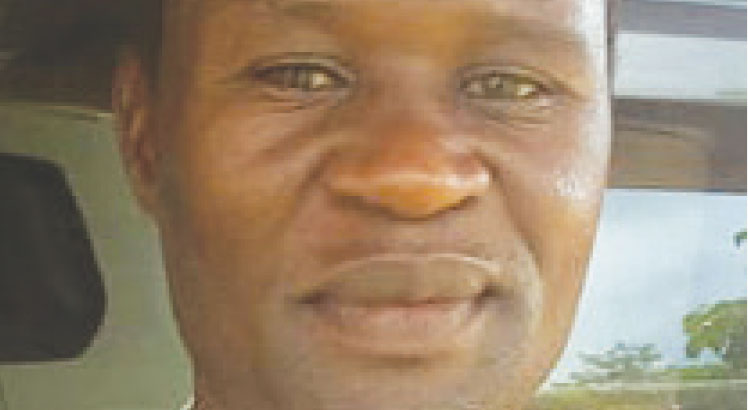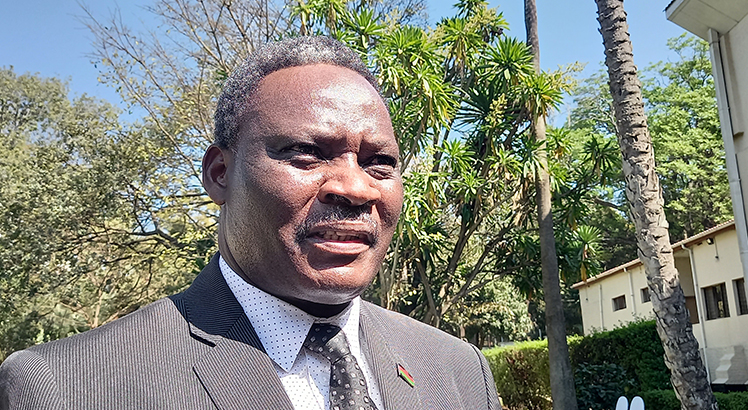Chitipa United, Extreme FC and Red Lions have bemoaned the absence of stadia in their fold, saying it is denying them great social-economic development opportunities.
Chitipa general secretary (GS) Duma Ngoma, Extreme coach Elvis Kafoteka and Lions GS Captain Davie Gondwe yesterday said it has been tough playing their home games away from home, making them spend a lot of their hard-earned money due to lack of standard stadia in their respective districts of Chitipa, Mchinji and Zomba.
Ngoma and Kafoteka said Chitipa and Extreme could have each saved at least K8 million had each not played 15 home games away from home.
The two clubs said they spend over K500 000 on transport and accommodation for a home fixture in Karonga and Lilongwe, respectively.
As for Lions, Gondwe said they need close to K1 million to fulfill their home fixture at Balaka Stadium, translating to about K15 million for all their home matches.
Ngoma: It is frustrating
Ngoma, whose team uses Karonga Stadium as their home ground, said they feel embarrassed to see their Super League home games grossing as little as K1million yet before being promoted, their matches in the second-tier Simso Northern Region Football League could rake in over K3 million on dusty pitches of Chitipa.
“Playing our Super League home games away from home has made us poorer than the time we played in the lower league as we have to spend a lot every time with little returns,” he said.
“When we played in the Simso League, we weren’t spending much and there was always a big turnout at our matches, a development that also motivated the players to offer their best.”
However, Ngoma believes the completion of Chitipa Stadium, which is under construction, will help ease their challenges. Currently, the facility’s perimeter fence and natural grass pitch are complete, but the dressing room and spectator stands are still being worked on.
Gondwe is also hopeful the completion of Zomba Stadium will help solve Lions’ problems.
“To say the truth, the lack of home ground has been the major contributing factor to our struggles in the league as we have always been on the road and that has had an impact on our performance on the pitch,” he said.
“We also missed home support. Players are always motivated when the cheering home crowd is behind them, but that has not been the case with us.”
On his part, Kafoteka believes Extreme FC could have survived relegation from the Super League if Mchinji district had a stadium.
“Picture this, you play all your games away from the home fans, who are crucial in boosting the team’s morale, and you return home almost empty-handed after the game grosses less than K500 000.
“Where can you get the motivation from to put up a gallant fight in the next game? It’s really tough to always play away from home,” he said.
Kafoteka also blamed other stakeholders, especially members of Parliament (MPs) in Mchinji for not showing interest to help the district have own stadium.
“Just imagine since Extreme got Super League promotion, not even a single MP or business gurus in Mchinji has come to motivate us or show seriousness in fighting for better sports facilities. As team officials, we mostly used personal money to finance the team,” he said.
Kafoteka also said it could be better if authorities such as government, Football Association of Malawi (FAM) and Malawi National Council of Sports surrendered their gate revenue shares to poor community teams such as Extreme.
Nevertheless, another Super League side Salima Sugar Dedza Dynamos has reaped a lot of benefits from having Dedza District Stadium in their fold.
Dynamos team manager Elija Ngondo said: “Playing at a stadium that is within our reach has helped us a lot in cutting costs and generating enough income for our operations.
“We have also garnered enough support from the community around us. Just last Sunday, our home game against Mighty Mukuru Wanderers grossed K12.5 million and we got a K2.5 million share after spending less than K200 000. Although we lost the game 0-1, we are happy people.
“Apart from that, businesses around the stadium have flourished. It was really satisfying to learn that during our game against Wanderers, restaurants made a lot of profits as they were overwhelmed by customers.”
In spite of that, maintenance of stadia has been a big problem in the country even with big facilities such as Bingu National Stadium in Lilongwe and Kamuzu Stadium in Blantyre struggling financially.
According to Bingu Stadium manager Ambilike Mwaungulu, the facility, which is the only qualified venue for international matches in the country, survives on meagre resources as this financial year, it received K75million for its daily maintenance instead of over K100million that was expected.
All the money that Bingu and Kamuzu stadiums get as gate revenue shares during matches is deposited into government’s account.
The post Clubs bemoan playing home matches away appeared first on The Nation Online.
 Moni Malawi
Moni Malawi 

